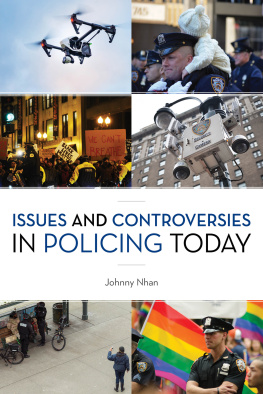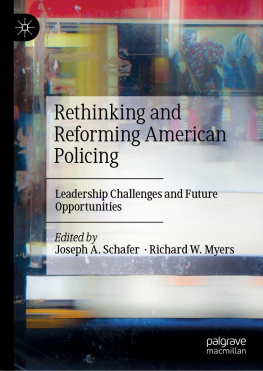First published in 2010 by Learning Matters Ltd
All rights reserved. No part of this publication may be reproduced, stored in a retrieval system or transmitted in any form by any means, electronic, mechanical, photocopying, recording, or otherwise, without prior permission in writing from Learning Matters Ltd.
2010 Copyright P A J Waddington and Martin Wright
British Library Cataloguing in Publication Data
A CIP record for this book is available from the British Library.
ISBN: 978 1 84445 355 9
The rights of P A J Waddington and Martin Wright to be identified as the authors of this Work have been asserted by them in accordance with the Copyright, Design and Patents Act 1988.
Cover and text design by Toucan Graphic Design Ltd.
Project Management by Diana Chambers
Typeset by Kelly Winter
Printed and bound in Great Britain by TJ International Ltd, Padstow, Cornwall
Learning Matters Ltd
33 Southernhay East
Exeter EX1 1NX
Tel: 01392 215560
info@learningmatters.co.uk
www.learningmatters.co.uk
All weblinks and web addresses in the book have been carefully checked prior to publication, but for up-to-date information please visit the Learning Matters website, www.learningmatters.co.uk.
1 Why a policing degree?
The purpose of the book
This book is aimed at all those higher education students who are taking degree-level vocational courses in policing. It is important to draw attention to the vocational aspect of these degrees, for there are many courses available that study policing as an object of inquiry, usually as part of criminology and criminal justice courses. The approach of these latter courses is to examine policing, much as one might examine parliamentary democracy that is, as an important institution that deserves scrutiny in order find out and critique how it works. That knowledge is only tangentially related to being a good and effective police officer, just as studying parliamentary democracy is unlikely to get you elected as a Member of Parliament. The approach of this series is quite different: we are in the business of producing a new generation of professional police officers. This book and others in the series aim to provide skills and knowledge that will not only facilitate entry to the police, but also provide a sound foundation for a professional policing career. This involves learning a great deal, but also acquiring habits of mind scepticism, rigour, respect for reason and evidence that will become increasingly relevant during the twenty-first century. This entails abandoning some misleading, but popular, beliefs about policing, as well as learning what might be uncomfortable truths. However, we would be sad if, at the end of this book, you did not feel inspired to forge a career in policing!
A word of welcome
Welcome to this book and the series of which it forms a part. Welcome also to your degree-level course in policing. Finally, welcome to the commencement of your policing career. Make no mistake, your career begins once you arrive at your university. It may even commence once you make it known that you have applied for, let alone been accepted on to, your university course. You will notice that others tend to treat you differently once they learn of your ambitions, but this is just the beginning, because as a police officer (which you aspire to become) you will be set apart from the remainder of the population. Police officers (as this book will demonstrate) have onerous responsibilities and enormous powers to coerce their fellow citizens. Staff and students will expect more of you, as a policing student, than they will of other students. You will be expected to behave more responsibly and conscientiously. If you fail to do so and behave generally like most students, others will look aghast and exclaim, And them, policing students as well! Wed have expected better of them!!! Get used to it! Policing is as much a matter of character as it is of intellect. This is not to say that intellectual demands on a policing degree are fewer than on other courses. Instead, it means that, in addition to the stringent intellectual demands that will be made upon you, there will also be a test of character. In short, a policing degree is not a soft option; it is among the hardest ways to earn a degree. So, the question you have to answer is, Are you tough enough to do this?
When you have decided that you are, read on.
A policing degree?
Almost all policing degrees are offered in collaboration with one or more police forces, with whom those developing the degree will have collaborated prior to its formal validation, and usually the respective police force will offer work placements of some kind for students on the degree course. Some policing degrees are only available to students who are already serving police officers. So, why do so many police forces throughout the UK believe that it is desirable for their officers to have a degree? The answer is provided by Her Majestys Inspectorate of Constabulary who, in 2002, carried out a Thematic Inspection of Police Training. The subsequent report stated:
If the Service is to be viewed as a profession, the initial training and development provided must be comparable with other professions and, in particular, those within the criminal justice system. The sum total of formal training which a probationer receives is around 31 weeks out of the 104-week probationary period. No other profession within this system would allow new staff to practise after so little training or without the achievement of a recognised qualification.
(HMIC, 2002, para. 4.2)
That report estimated that, on the first day of patrolling, a police officer needs to be familiar with 5,000 pieces of legislation. Thats right, 5,000! But that is not all: police officers need to be knowledgeable about all of the following.
- Case law made on a daily basis by judges sitting in the highest courts of the land making decisions about how statutes passed by Parliament should be interpreted and what constitutes an offence under Common Law (the unwritten law that has been passed down by previous generations).
- Using protective equipment appropriately.
- Providing first aid to those who have been injured.
- Distinguishing between people who are agitated and aggressive because they are intoxicated; because they are diabetic and suffering from an insulin overdose; or because they are mentally ill or emotionally disturbed; as well as taking appropriate action as needed.
- Recognising as victims those who have been traumatised by a crime they have witnessed.
- Appreciating cultural diversity that might influence how closely you stand to another person or how firmly you shake their hand.
- Actively engaging with all those in an area who can influence behaviour and forming partnerships with them to address local problems.
- Identifying recurring problems that might be symptoms of a deeper malaise; researching that problem to find solutions to it; persuading others to play their part in applying the solution; and evaluating its success.






